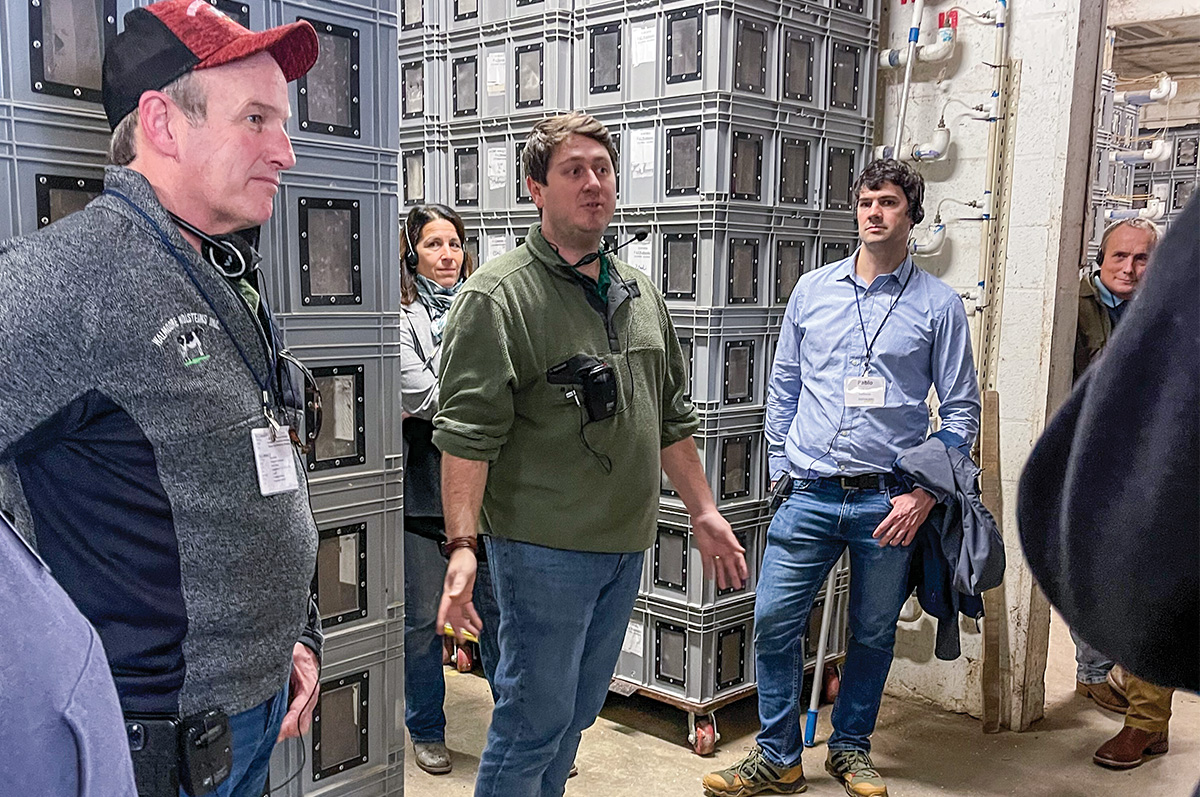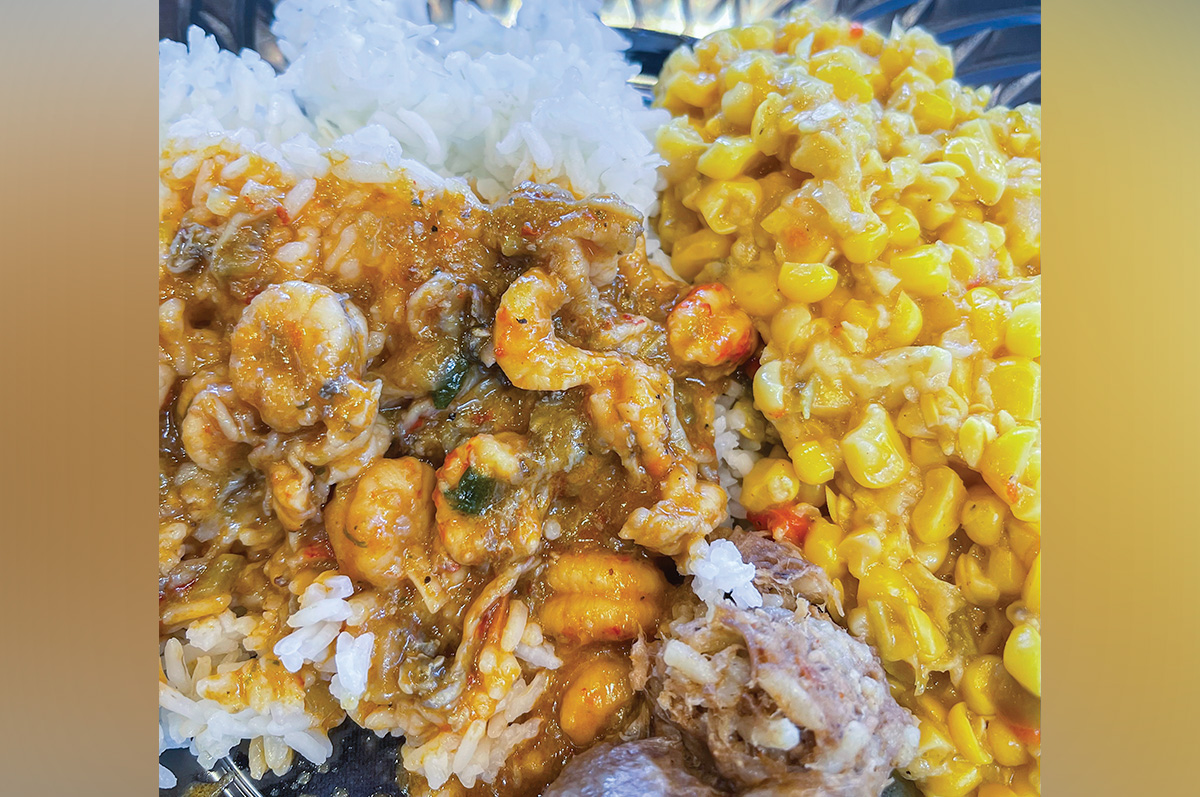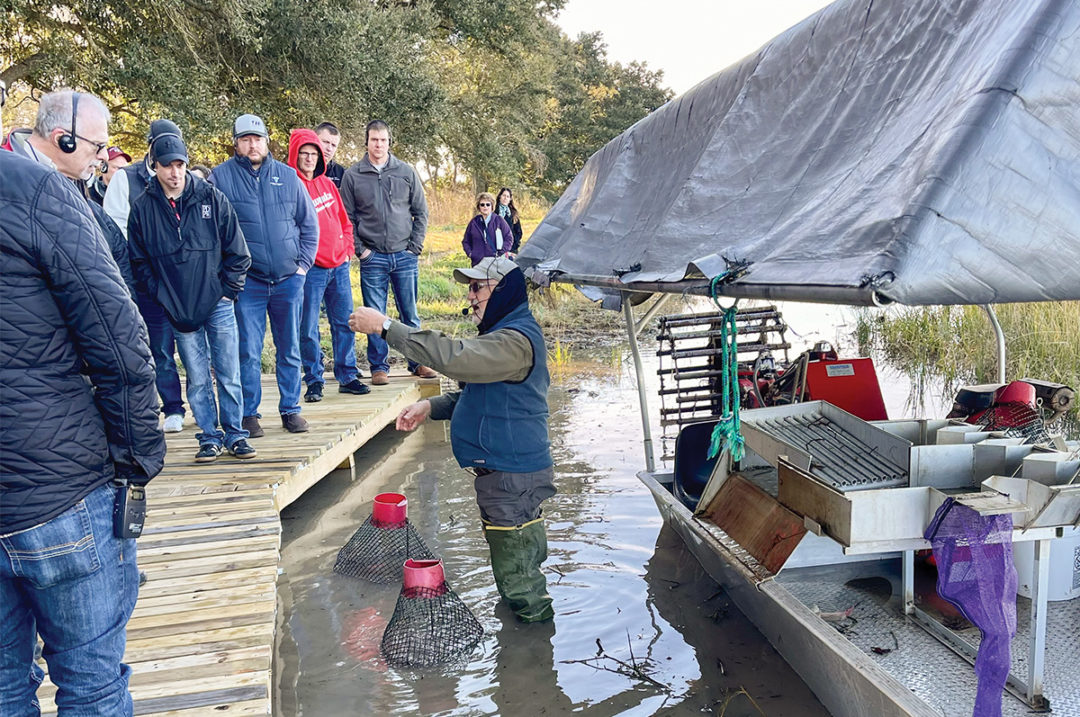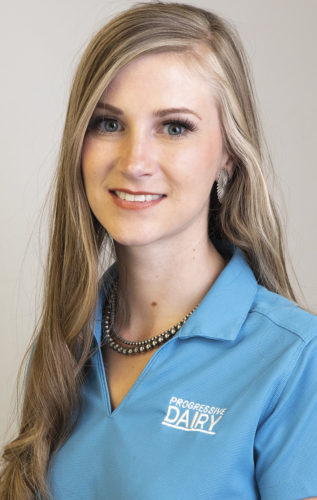While tugboats and barges drove up and down the Mississippi River, the 2024 PDPW Managers Academy for Dairy Professionals convened on the banks in Baton Rouge, Louisiana, Jan. 9-11. For three days, dairy producers and industry leaders engaged in executive-level professional development training and networking designed to expand their knowledge and skill sets. The theme for this year’s program was “Persistence, no matter what.” The event attracted more than 50 owners and managers, consultants, industry suppliers, nutritionists and marketers from 11 U.S. states and Canada.
Jacob Shapiro, a New Orleans-based speaker and director of geopolitical analysis at Cognitive Investments, started the training by sharing what is happening around the world that will shape the next five years and how it will affect dairy producers and other major agriculture commodities.
“I feel like everybody thinks geopolitics is really negative right now. I'm actually profoundly optimistic about the next five to 10 years,” Shapiro said. “I think we will look back at these days as the good days. And the difference between somebody who's successful these days and somebody who is not is if you continue with business as usual, you will be unsuccessful. The world is changing, but you have opportunities now while the U.S. is still in the position that it's in to make changes.”
Shapiro continued by stating that overall dairy consumption has never been flat and that cheese consumption has more than doubled.
“We've gone from milk to cheese, yogurt and all sorts of dairy products that are an opportunity. Before, we were thinking about milk in general. Now, it's about moving up the value chain and making products people actually want to buy, whether it's cheese products or delivered products,” Shapiro said. “There is immense demand for these things. There's more than enough milk and not enough of these types of products. Start thinking about how to integrate vertically and how to start building brands and selling products like this in addition to all the things that you're doing, and then think about the export market. The geopolitical lens in the room is telling you that might be a smarter way of doing things.”

From the PDPW Managers Academy conference room in Baton Rouge, Louisiana, tugboats and barges could be seen going up and down the Mississippi River. Photo by Audrey Schmitz.
Later in the day, Jason Karszes, a dairy farm management specialist with the PRO-DAIRY Program at Cornell University, spoke about the best practices that make up the top 25% of dairy producers. He presented financial characteristics for long-term sustainability from a six-year trend analysis and dairy farm business summary of 122 farms in New York.
“Top farms make more milk and spend less to do it,” Karszes said. “They averaged 4 percent higher milk production per cow over the six years and were 1 dollar and 50 cents lower in total cost to produce milk per hundredweight.”
Herd size can aid in more profits but does not guarantee more profits, Karszes said. Higher herd numbers tend to do better, but it ultimately depends on wherever the best managers are.
“High-profit farms position themselves to take advantage of opportunity,” Karszes said. “They have less debt per cow and more working capital as a percent of expenses. The goal is not to minimize costs but to maximize profit or minimize loss.”
On day two, attendees got off the farm and out of the office for four thought-provoking tours to learn about the challenges and unique management approaches taken by other businesses.
Tietje Crawfish Farm
Nothing says Louisiana like crawfish. At the first stop, participants got up close and personal with the crawfish habitat and harvesting processes. Owner Burt Tietje dove into what it takes to raise and harvest crawfish and market food-grade crawfish.
“Farming crawfish in south Louisiana is a unique agricultural practice that is tied closely with the cultural traditions of French Acadians who settled here after being expelled from Nova Scotia by the English in 1755,” Tietje said. “Consuming crawfish was a very localized practice until the 1970s, when eating crawfish became a popular weekend activity. Soon, the supply of ‘wild caught’ was outpaced by the demand, and the cultivation of crawfish in rice fields began to evolve.”
“Our land and our climate combine with abundant water resources to produce a crop that is unique and delicious,” Tietje said.
Double-cropping farmers like Tietje plant rice in April, and six to eight weeks later, they flood the pond with about 18 inches of water. Fifty to 75 pounds of crawfish broodstock per acre are added to the pond to grow and reproduce. In August, the pond is drained, the crawfish burrow underground and the rice is harvested.
South LA Rail Rice Mill
During the second stop, attendees toured the South LA Rail Rice Mill. With limited market options, a small group of rice producers in 2009 took back their control and began investing their time and money into creating their own market access. A little over 150 members joined together to contribute $5 million in approximately five days toward their own rail-loading facility. After building the rail-loading facility, they have created market access for their white rice product with exports to Mexico since 2012. Today, they navigate the challenge of finding and creating new markets as they continue to grow.
For lunch, conferencegoers were treated to a traditional Louisiana meal of crawfish gumbo, rice and maque choux (a classic Cajun recipe of corn and peppers) at the Bayou Rum distillery and event center.
Marucci Sports
That afternoon, attendees visited Marucci Sports, the number-one wooden bat maker in major league baseball, where they witnessed craftsmanship in action as they toured the facility. Founded by two former big leaguers and their athletic trainer, Marucci has become one of the best batmakers in the league. Attendees saw up close how the maple wood is selected, tested and manufactured into world-class bats and then packaged and shipped from the site to professional baseball players.

Custom wooden bats for major league baseball players from Marucci Sports are manufactured and shipped from Baton Rouge, Louisiana. Photo by Audrey Schmitz.
Another highlight of Marucci was their Baseball Performance Lab, which is a one-of-a-kind research and development center. They are the first baseball brand to offer an on-site bat-fitting service for wood and aluminum bats using unique technology to test and evaluate the players' swing, step and other variables.
Fluker Farms
For the final stop of the day, participants toured Fluker Farms. What started in the 1950s as an endeavor to supply crickets to a local bait shop has expanded to become the nation’s leader in live insect production and exotic pet supplies. In the late 1980s, Fluker Farms realized a demand from their customers to offer additional live insects, mealworms, hissing cockroaches, superworms and more for feeder and baiting needs.

Third-generation farmer, Vance Noland, explained the growing stages and sale of live crickets on Fluker Farms. Photo by Audrey Schmitz.
Attendees learned how Fluker Farms is setting up the next generation for success, while also continuing to scale their business as they work with large retailers. Today Fluker Farms ships 3,000 to 4,000 orders a week of live insects and has over 250 stock-keeping units (SKUs) that are distributed and sold throughout North America. Their products can be found in PetCo, PetSmart, Walmart, Tractor Supply, Chewy and other major retailers.
A. Wilbert’s Sons LLC
During dinner that evening, conferencegoers learned about A. Wilbert’s Sons LLC, a private landowning company that has continued to grow and diversify as an agricultural entity in Plaquemine, Louisiana. The company has grown its footprint to approximately 114,000 acres across 12 parishes in Louisiana and three counties in Mississippi, with its primary businesses in timber and wildlife management, agricultural row crops, and oil and gas exploration and development.

Attendees were treated to a traditional Louisiana meal of crawfish gumbo, rice and Maque Choux (a classic Cajun recipe of corn and peppers). Photo by Audrey Schmitz.
On the final day, Richard Kyte, endowed professor of the D.B. Reinhart Institute for Ethics in Leadership, talked about mitigating employee stress and anxiety through ethical decision-making in high-stress situations. He explained how the complexity of decision-making has increased significantly in the last 50 years due to technology advancing at a high rate. To combat this, he presented the “Four-way method for ethical decision-making” concept, which comprise truth, consequences, fairness and character.
By the end of the week, Managers Academy participants were able to take home a combination of business strategies and their fill of Louisiana cuisine.





